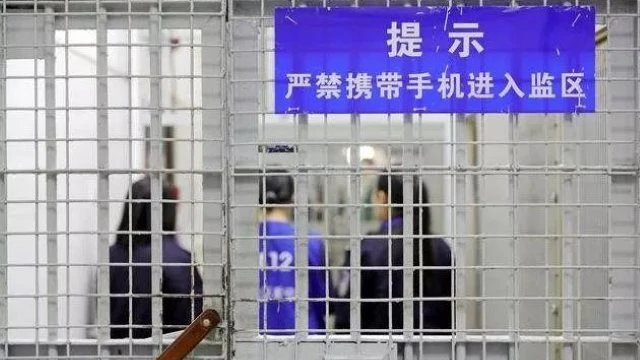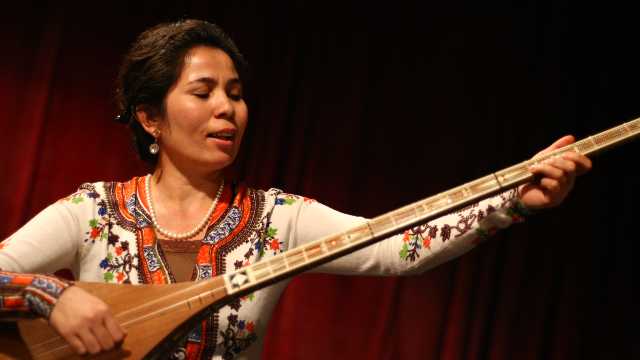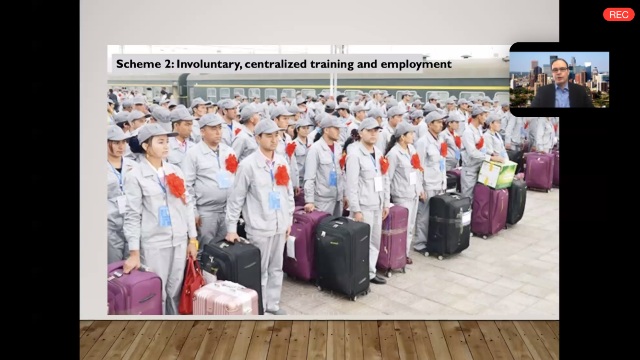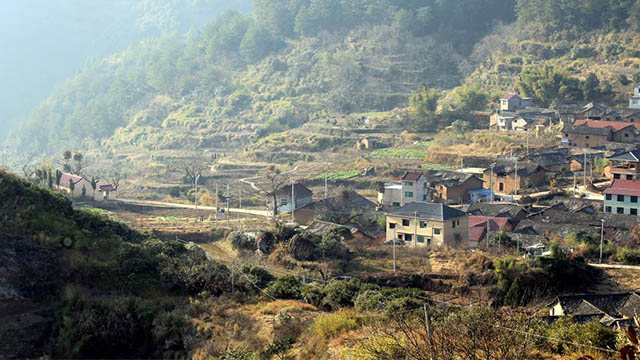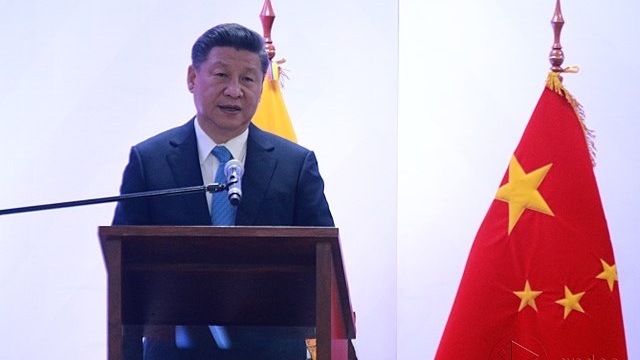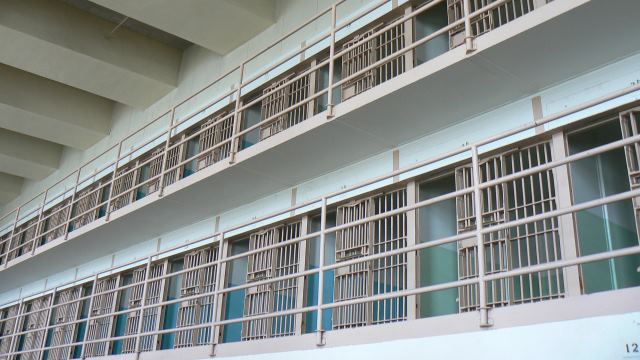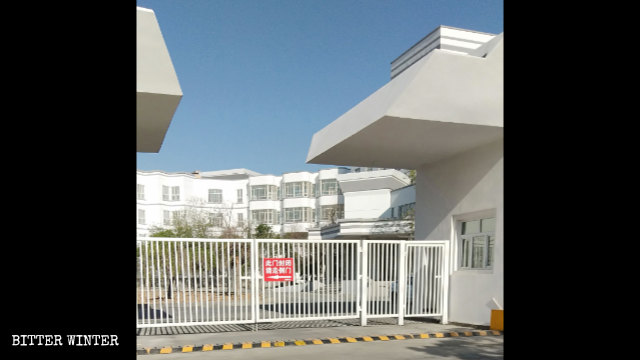
China’s public security officials prioritize extreme measures to avoid or resist possible mass anti-government uprisings, singling out believers.
The Chinese Ministry of Public Security (MPS) is making the prevention of potential “Color Revolutions” one of its primary tasks for 2019. A high-level MPS official made a surprising reference to such Color Revolutions in a recent speech, and an internal document acquired by Bitter Winter reveals the authorities’ specific approach for resisting mass protests.
Color Revolutions, also known as “Flower Revolutions,” are campaigns for regime change through peaceful citizen action. A series of such movements began in the 1980s and 90s in countries of the former Soviet Union and elsewhere. China’s own “revolution” of the time happened in 1989, when, from April 15, students and other protesters began gathering in Tiananmen Square in Beijing, demanding freedom of speech and democracy. The Chinese authorities were extremely scared of the protests, particularly because public movements in Europe were in the process of destroying the Soviet Union and other Communist regimes, and, therefore, ordered troops that opened fire on the protestors, killing about 10,000, to some calculations.
Successful Color Revolutions were able to overthrow previous dictatorships and establish democratically elected governments in the Yellow Revolution in the Philippines in 1986, in the October 5 Revolution in Serbia in 2000, in the Rose Revolution in Georgia in 2003, in the Orange Revolution in Ukraine in 2004, and in other countries.
According to media reports from Mainland China, Zhao Kezhi, the head of China’s MPS, addressed a yearly national MPS conference on January 17. Mr. Zhao told the gathering of provincial security directors that their primary focus for the year would be preventing and resisting Color Revolutions and defending the political security of the Chinese Communist Party (CCP) regime. They were also to combat “opponent forces domestically and abroad” and “destructive activities of infiltration and subversion.” Word of this speech immediately attracted attention because the head of MPS had never spoken so bluntly about Color Revolutions.
What Mr. Zhao’s statements could actually mean in practice was clarified in a document acquired by Bitter Winter. Titled Notification Regarding the Filing of Self-Appraisal Report of the 2018 Work of Comprehensive Management of Public Security (Peace Construction) and Relevant Materials, the document was created by a local Committee for Comprehensive Management of Public Security in southeastern Jiangxi Province. The document assesses the Committee’s performance by awarding a certain number of points to each of a list of criteria, and subtracting points for failing to deliver on certain criteria.
“The maintenance of state security and social stability” is one of the Committee’s primary tasks, and the most points are available in this category in judging the Committee’s performance. Under this category of maintaining security and social stability, the work of “prevention, control, and dissolution of the risk of a ‘Color Revolution’” is the top activity to judge, and has seven sub-activities to rate:
- Tasks for the maintenance of social and political stability
- Construction of a “People’s Line of Defense of State Security”
- Control of individuals who affect state security and social and political stability
- Xie jiao prevention and handling tasks
- Management of foreign NGOs’ activities in China
- Resistance of foreign exploitation of religion for infiltration and subversion, as well as the defusing and handling of ethnic conflicts, disputes, emergencies, and criminal offenses, etc.
- Tasks of guarding state secrets
Over the past few years, mass protests and anti-government incidents have occurred in China, and the masses’ hostility towards the authoritarian government is increasing. Observers say this new emphasis on Color Revolutions by the MPS is driven by concerns about increasing unrest.
Another document obtained by Bitter Winter, issued by a municipal CCP committee in a city in northeastern Liaoning Province in mid-2018, also orders strict controls to avoid Color Revolutions. The document mandates that officials “take strict precautions to prevent hostile forces from infiltrating ethnic groups, religions, and universities,” and prevent the exploitation of sensitive cases, mass incidents, and mass “human rights activities” by “hostile forces.” Also listed in the category of Color Revolutions are crackdowns on organizations identified as xie jiao and religious activities involving foreign citizens or entities. The document also demands the “launch of a counter-espionage war” to strengthen the control over online “infiltration” activities.
The calls to “launch a counter-espionage war” and construct “people’s line of defense of state security” stand out in particular. CCP-controlled media reports that, during the second half of 2018, government bodies including the Administration for Industry and Commerce, the Securities Regulatory Commissions, sub-districts governments, hospitals, and universities across China have been renaming their “state security groups” as groups of “People’s Line of Defense of State Security.”
These former “state security groups” were tasked with educating government officials about guarding state secrets and enhancing their knowledge of counter-espionage. One of the tools of such knowledge enhancement is the requirement to study the Anti-Espionage Law. After its adoption in 2014, the law has caused concerns, as human rights activists and lawyers feared that vague concepts and non-specific provisions of the law give the CCP significant room to abuse and attack dissidents and media reporters.
One activist warned, “Those of you who like to wave your phones around and take pictures wherever you go, blindly exposing things, have better be careful in the future! Who knows when you’ll be dragged off to the public security organs as a spy!”
Fears of arrest for filming and taking pictures are not exaggerated. At least 45 Bitter Witter contributors in Mainland China were arrested last year for filming incidents of, or gathering news about, the CCP’s persecution of religious freedom and violation of human rights. Some reporters were detained and interrogated on the charge of “divulging state secrets” or “involvement in infiltration by foreign forces.” During the interrogation, officers claimed that those reporters engaged in “espionage activities.”
According to foreign media reports, since China ratified the Anti-Espionage Law, arrests of foreign individuals on suspicion of espionage in China have increased.
More concerning for advocates of religious freedom is that “prevention and handling of xie jiao issues” has been listed under the scope of Color Revolution prevention and control. The CCP’s standard for the classification of religious groups largely depends on whether or not they are perceived as threats to the CCP regime. If a religious group is considered to be difficult for the CCP to control, and is relatively large, it will likely be listed as a xie jiao. As indicated by experts on religion in China, participating in a religious group that the CCP has classified as a xie jiao is viewed as a subversive activity or crime, and subject to the government’s harsh crackdown.
The CCP labels regular religious activities that it views as threats to the political stability as “foreign infiltration,” “subversion of state power,” and even “terrorism,” in order to crack down on them. This tendency is seen not only in the persecution of religious movements that are on the official list of xie jiao, but also the brutal persecution of Xinjiang Muslims and the crack down on churches that are not part of government-approved religious organizations. The case of the Early Rain Covenant Church is one of the latest examples of such persecution: the church’s pastor Wang Yi was arrested on the ground of “incitement to subvert state power.”
The fact that MPS lists religious groups under the scope of Color Revolution prevention and control makes their firm attitude of classifying religious groups as political enemies even more clear. It is foreseeable that religious groups will be facing even more heavy crackdowns in 2019.
Source:BITTER WINTER /


